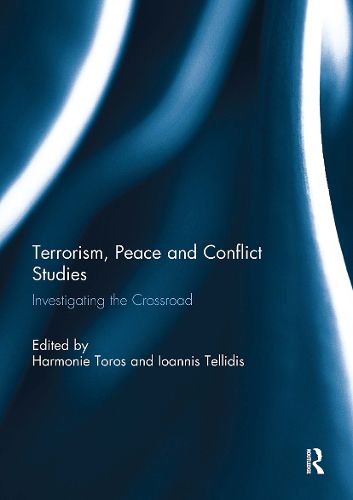Readings Newsletter
Become a Readings Member to make your shopping experience even easier.
Sign in or sign up for free!
You’re not far away from qualifying for FREE standard shipping within Australia
You’ve qualified for FREE standard shipping within Australia
The cart is loading…






This book opens up the discussion of the interrelation between terrorism studies, and peace and conflict studies. Even though it is often accepted that terrorism is a form of political violence, it is also quite frequent that research on the topic is dismissed when it is approached with conflict analysis frames. More importantly, policy approaches continue to inhibit, obstruct and reject frameworks that are concerned with the transformation and resolution of terrorist conflicts - partly because they see the state as the ultimate referent object to be secured. At the same time, peace and conflict studies seem to be excessively focused on problem-solving approaches, overemphasising the role of parity during negotiations and misdiagnosing the distribution of power both within conflicts as well as within conflict management, resolution and/or transformation approaches. By examining the instances and circumstances in which both these fields can benefit from each other, this book enhances our understanding of this crucial area.
This book was published as a special issue of Critical Studies on Terrorism.
$9.00 standard shipping within Australia
FREE standard shipping within Australia for orders over $100.00
Express & International shipping calculated at checkout
This book opens up the discussion of the interrelation between terrorism studies, and peace and conflict studies. Even though it is often accepted that terrorism is a form of political violence, it is also quite frequent that research on the topic is dismissed when it is approached with conflict analysis frames. More importantly, policy approaches continue to inhibit, obstruct and reject frameworks that are concerned with the transformation and resolution of terrorist conflicts - partly because they see the state as the ultimate referent object to be secured. At the same time, peace and conflict studies seem to be excessively focused on problem-solving approaches, overemphasising the role of parity during negotiations and misdiagnosing the distribution of power both within conflicts as well as within conflict management, resolution and/or transformation approaches. By examining the instances and circumstances in which both these fields can benefit from each other, this book enhances our understanding of this crucial area.
This book was published as a special issue of Critical Studies on Terrorism.